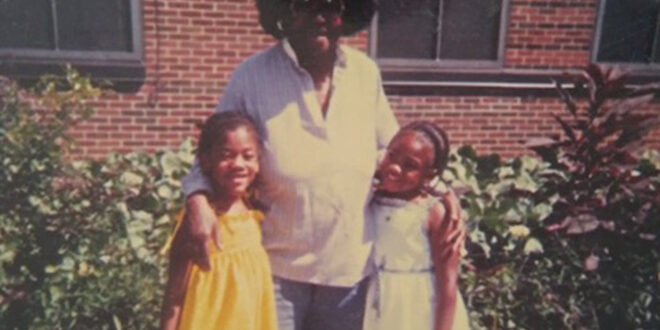Contributed by the Syracuse Urban Food Forest Project
West Side resident Antonisha Owens is proud to say she is a farmer. She is also a licensed cosmetologist, beauty product artisan and self-proclaimed forager. If her name rings a bell, it may be on account of her previous Stand article detailing the many connections between urban foraging and entrepreneurship.
Jointly written by her and members of the Syracuse Urban Food Forest Project, that piece pitched foraging to local entrepreneurs looking to source local ingredients. As owner of beauty product salon AficaPure on the West Side, Antonisha already forages local mint, rosehip and motherwort for her line. Now she aims to grow them.
“It got to a point where I felt like I couldn’t sustain myself if I didn’t have a farm and wasn’t growing my own ingredients,” she said.
This desire to purchase land and grow ingredients inspired her to seek further training. She recently graduated from the Groundswell Center in Ithaca. The seven-month program readies farmers for no-till production — focusing on hands-on vegetable production, livestock farming and farmer apprenticeship. The program emphasizes Black, Indigenous and People of Color (BIPOC) farmer training, speaking to the historical and modern-day structural issues marginalized farmers face.
“They want to educate and re-educate us on getting back connected with the land,” she said. “They’re also educating us on the possibility that one day we will go out and purchase land and farm in more responsible ways.”
Despite growing up in a farming family, prejudice and circumstance have robbed Antonisha of the more traditional transfer of knowledge and land. Her great great-grandparents owned land in Alabama until it was no longer affordable. Farmers around them received financial assistance from the government to keep their land, but not the BIPOC farmers. A generation later, her great-grandmother and grandmother — tired of being sharecroppers — migrated to Syracuse where they became residents of Pioneer Homes, one of the earliest public housing projects in the country. As a kid, Antonisha lived with her grandparents until she was 13. She learned the basics of growing produce while watching her grandmother tend an outdoor vegetable garden. That plot was taken away, too.
“I was young when the gardens disappeared,” Antonisha explained, “we were told in the projects, we couldn’t have a garden anymore. So everyone just stopped.”
Talking about this clearly strikes a nerve for Antonisha, but it never squashed her desire to cultivate land. The self-taught, beauty product maker built a relationship with nature a long time ago, describing foraging as a way to do more for her body, her children, her business and her community. Sourcing her own ingredients comes from experience of understanding that relying on companies to provide safe ingredients that will arrive on time, is a business risk.
“I needed to be more in charge of my process and how it might affect me if I couldn’t get ingredients,” she said. “I decided I need my own land, and I need to grow my own ingredients as much as possible.”
Now, Antonisha wants to share what she’s learned with her community, the residents of Syracuse.
“Don’t be afraid to step out and take your own freedom,” she said. “Start by growing your own food. You are entitled to grow your own food. You are in control of what you eat. This is how we become stronger as a community.”
Antonisha never got her family’s land. That cruelty can never be fully mended, but she does have some sense of coming full circle. In her quest to buy land, armed with the knowledge of how to cultivate it, she has taken back some aspect of what was robbed of her, of her grandparents and her great-grandparents.
“I have a sense of freedom,” she said. “When you grow your own food, you have freedom. You are in control of your livelihood, and I think that is something that has been taken away from a lot people.”
Antonisha continues to work with the Syracuse Urban Food Forest Project (SUFFP), an interdisciplinary and inter-institutional initiative by Syracuse University and SUNY-College of Environmental Science and Forestry. SUFFP weaves together ecological sciences, landscape design, urban food policy and community engagement, encouraging individuals to rediscover an edible urban landscape. The group has created a 5-mile publicly accessible community food forest on the southwest side of Syracuse.
Additionally, Antonisha is the proud owner of AFICA, All Freedom is Creativity Accessorize, LLC. Her space is located at 303 Gere Ave., currently open from 6 to 9 p.m. Monday through Friday and 11 a.m. to 8 p.m. weekends. Her products are also available online at www.aficapure.com.
The Syracuse Urban Food Forest Project studies use and accessibility of wild food and medicine growing in city parks on the South Side of Syracuse
 The Stand
The Stand


